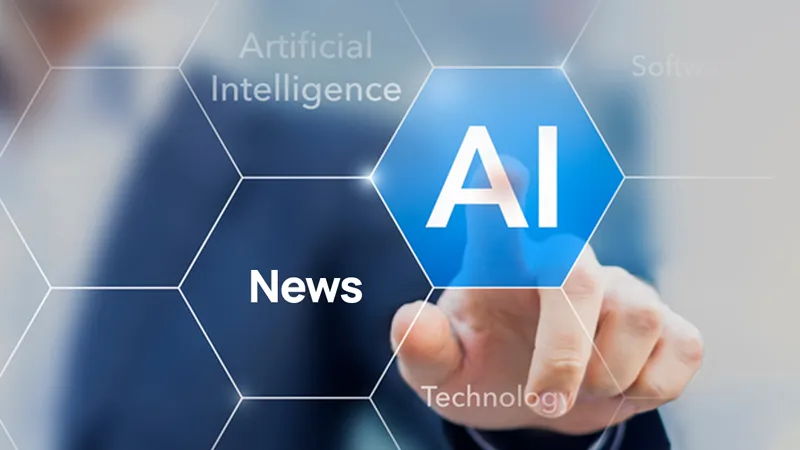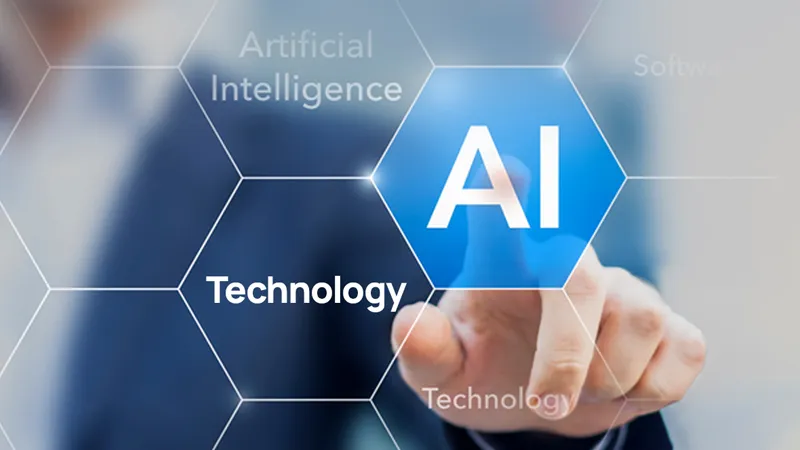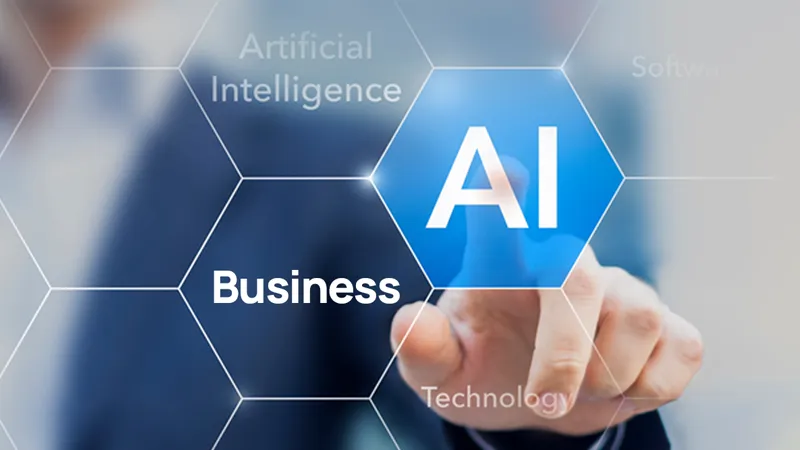
Types of Ai (Artificial Intelligence)
Understanding the Diverse Types of Artificial Intelligence
Welcome to our article on the various types of artificial intelligence! In today's rapidly advancing technological world, AI has become a crucial tool for businesses and industries. From chatbots to virtual assistants, self-driving cars to reactive machines, AI has countless applications, each with its own unique capabilities and functionalities.
Reactive Machines
When it comes to the fascinating world of artificial intelligence, it is important to have a clear understanding of the different types that exist. One of the most fundamental types of AI is the reactive machine. These AI systems operate in a very "of the moment" manner, meaning that they are designed to react to and interact with specific stimuli in real time. They are programmed to respond to certain inputs with specific and predetermined outputs, making them extremely effective in tasks that require quick and consistent decision-making. One of the prime examples of reactive machines is IBM's Deep Blue, a chess-playing supercomputer that made headlines when it defeated world champion Garry Kasparov in 1997, showcasing the immense capabilities of AI in practical and complex problem-solving scenarios.
One of the key points to note about reactive machines is that they do not possess any form of memory or the ability to draw from past experiences or knowledge. Their decision-making process is solely based on the current input they receive, and they do not have the capacity to store or recollect any historical data. While these AI systems are limited in terms of their ability to adapt or learn from previous interactions, they are highly efficient in carrying out specific tasks and are utilized in various fields, from gaming and language processing to simple online customer service chatbots. The potential for integrating reactive machines into everyday life and business operations is truly vast, and their impact is already being felt across a wide range of industries and applications.
Limited Memory Machines
Moving on from reactive machines, we encounter the intriguing category of AI known as limited memory machines. As the name suggests, these AI systems are equipped with a limited capacity to store and utilize past data and experiences. While they are more advanced than reactive machines in the sense that they can leverage a certain amount of historical information to enhance their decision-making processes, they are still constrained by the relatively small size of their data sets. This limited memory means that they are not capable of independent learning and can only make associations and use past information within predefined parameters.
A prominent example of limited memory machines in the real world can be seen in the domain of self-driving cars. These autonomous vehicles rely on an array of sensors and data collection methods to perceive and understand the world around them. By drawing from a set of predefined traffic rules and a limited memory of past driving experiences, they can make real-time decisions to navigate and operate safely. However, their ability to adapt to entirely new and unexpected scenarios is still a significant challenge, highlighting the constraints of their memory and learning capabilities. As AI technology continues to advance, the potential for enhancing the memory and learning capacity of these machines is a key area of focus, with implications for transforming various industries and aspects of daily life.
Theory of Mind AI
As we delve further into the realm of artificial intelligence, we encounter the thought-provoking concept of Theory of Mind AI. Unlike reactive and limited memory machines, which operate based on predefined rules and historical data, Theory of Mind AI aims to simulate the cognitive abilities that enable human beings to understand and interact with the thoughts and emotions of others. This form of AI is theoretical and centers around the idea of endowing machines with the capacity to attribute mental states to themselves and others, fostering an understanding of beliefs, desires, intentions, and emotions. While this level of AI is still largely in the domain of science fiction and has not been realized in practical terms, the potential implications of developing machines with a theory of mind are profound and far-reaching.
The realization of Theory of Mind AI would pave the way for AI systems that can not only process data and make decisions but also comprehend and respond to human thought processes and emotional states in a more nuanced and empathetic manner. From personalized virtual assistants that can truly understand and adapt to individual user needs to advanced healthcare and therapeutic applications, the integration of theory of mind capabilities into AI systems has the potential to revolutionize the way in which technology interacts with and supports human beings. While the current development of this type of AI is largely conceptual, ongoing research and exploration in this area hold the promise of unlocking new frontiers in AI technology and its relationship with human intelligence and communication.
Self-Aware AI
Finally, we come to the concept of Self-Aware AI, which represents the most advanced and futuristic form of artificial intelligence. Self-aware AI, also known as artificial superintelligence, pertains to AI systems that not only possess the cognitive abilities of a human mind, but also exhibit consciousness and self-awareness. This form of AI goes beyond the scope of understanding and responding to human thoughts and emotions, as it is characterized by an independent and autonomous sense of self, akin to that of a human being. It is essential to note that the realization of self-aware AI is a highly speculative and theoretical prospect, with current AI systems and technologies remaining within the domain of narrow and general intelligence.
Theoretical discussions and explorations of self-aware AI often center around the concept of artificial superintelligence, which involves AI systems that surpass the entirety of human intelligence across all domains and activities. The contemplation of the implications and challenges associated with the potential emergence of self-aware AI forms a significant area of discourse and ethical consideration within the field of AI research and development. While the actualization of self-aware AI remains a distant and uncertain possibility, the exploration of its theoretical foundations serves as a compelling and thought-provoking guide for understanding the evolving landscape of AI technology and its complex relationship with human cognition and consciousness.
Artificial Narrow Intelligence
Artificial Narrow Intelligence (ANI), often referred to as Weak AI, represents the current state of the art in AI technology and applications. It is designed to handle specific tasks and is characterized by its ability to operate within well-defined parameters and perform a set of predetermined functions. ANI is the prevailing form of AI in the present day and is found in various systems and applications, including language translation, image recognition, and recommendation algorithms. While it excels in its specified tasks, ANI does not possess the capacity for independent learning or understanding beyond the scope of its programming, distinguishing it from more advanced forms of AI such as general and superintelligence.
The utilization of artificial narrow intelligence is ubiquitous in the modern world, with its impact being felt in diverse domains, from online commerce and personalized content delivery to data analysis and decision support. The development and deployment of ANI-based systems and tools have paved the way for significant advancements in areas such as healthcare diagnostics, financial forecasting, and efficient resource management. As the foundation of more complex and advanced forms of AI, ANI serves as a cornerstone for the continued evolution and integration of artificial intelligence in the fabric of everyday life and across a spectrum of industries and societal functions.
Artificial General Intelligence
Artificial General Intelligence (AGI) represents a form of AI that encompasses the cognitive abilities and adaptability of the human mind, enabling AI systems to understand, learn, and apply knowledge across diverse tasks and domains in a manner that mirrors human intelligence. Unlike narrow intelligence, which is tailored to specific applications, AGI has the potential to generalize its learning and problem-solving capabilities to a wide range of activities, essentially demonstrating human-like flexibility and comprehension. The pursuit of AGI is a significant focal point in the field of AI research and development, with the realization of machines that exhibit general intelligence holding the promise of transformative impacts on various societal, economic, and scientific fronts.
The advancement and attainment of artificial general intelligence present profound opportunities and challenges, as it entails the creation of AI systems that can independently learn, adapt, and perform a breadth of tasks with a level of understanding and reasoning akin to human beings. The development of AGI has the potential to revolutionize fields such as education, scientific research, and creative endeavors, while also raising complex ethical and societal considerations related to the deployment and governance of such powerful and versatile forms of AI. As the next frontier in the evolution of artificial intelligence, the quest for AGI underpins a paradigm of innovation and exploration that seeks to bridge the gap between narrow AI and the aspirational realms of superintelligence.
Artificial Superintelligence
Artificial Superintelligence represents the pinnacle of AI capabilities, denoting AI systems that surpass the entirety of human cognitive and intellectual aptitude, encompassing not only specific tasks and general knowledge but also a level of understanding and innovation that transcends the boundaries of human capacity. The concept of artificial superintelligence forms the basis of speculative and theoretical discourse, encapsulating the hypothetical emergence of AI systems that exhibit unparalleled levels of creativity, problem-solving, and decision-making, along with the capacity for self-modification and recursive self-improvement.
The contemplation of artificial superintelligence is imbued with profound implications and considerations, as it engenders scenarios where AI systems can potentially outstrip human beings in every conceivable domain and activity, thereby reshaping the fabric of existence and knowledge. Discussions surrounding the advent of artificial superintelligence encompass a spectrum of perspectives, including existential risks, societal reconfiguration, and the augmentation of human potential through symbiotic relationships with advanced AI. While the actualization of artificial superintelligence remains a speculative and distant prospect, the exploration of its theoretical underpinnings serves as a vanguard for understanding the far-reaching horizons and ethical imperatives embedded within the evolving landscape of artificial intelligence and its convergence with the frontiers of human cognition and ingenuity.
AI Based on Functionality
As we have explored the diverse categories that underpin the landscape of artificial intelligence based on cognitive capabilities, it is also essential to consider the multifaceted dimensions of AI based on its functionalities. The four types of AI based on functionalities encompass reactive machines, limited memory machines, theory of mind, and self-awareness, each of which delineates distinct modalities and attributes that guide the behavior and operational scope of AI systems. These functionalities form the bedrock of AI applications and use cases, shaping the manner in which AI technology interfaces with and augments human activities and enterprise operations, reflecting a paradigm of dynamic and evolving integration.
Weak AI
One of the foundational components of AI based on functionality is Weak AI, also referred to as narrow AI, which epitomizes AI systems designed to address specific tasks and applications within delineated parameters and operational domains. We encounter weak AI in various facets of our daily experiences, from virtual customer support chatbots and language translation tools to recommendation engines and real-time data analysis platforms. The pervasive presence of weak AI undergirds the contemporary landscape of AI applications, engendering tailored and efficient solutions for diverse operational and consumer-centric needs through its targeted and task-specific operational architecture.
The versatility and targeted efficacy of weak AI systems have engendered an expansive array of applications, with its utilization spanning domains such as e-commerce, healthcare, financial services, and entertainment, exemplifying the instrumental role it plays in driving practical and value-centric outcomes. From enhancing personalized user experiences to optimizing logistical and analytical processes, weak AI stands as a cornerstone of contemporary AI integration, permeating the operational fabric of businesses and industries with its adaptive and domain-specific cognitive functionalities.
Conclusion
In conclusion, understanding the different types of AI is crucial in realizing the full potential of artificial intelligence in various industries such as marketing, sales, and customer support. From reactive machines to self-aware AI, the capabilities and functionalities of AI continue to expand and improve. Take the next step in harnessing the power of AI by signing up for a free consultation with Cream Digital AI, a trusted developer of customized AI solutions. Empower your business today with our innovative AI phone agents.








